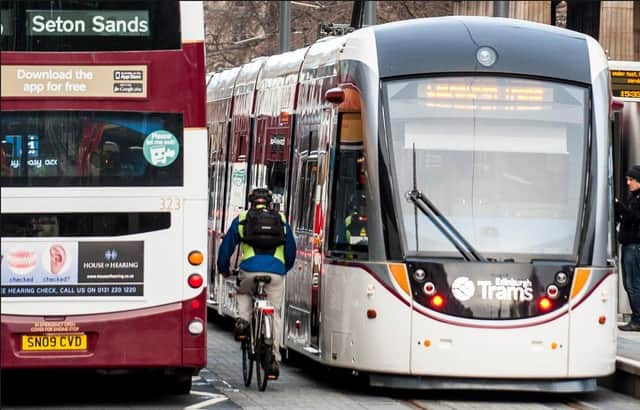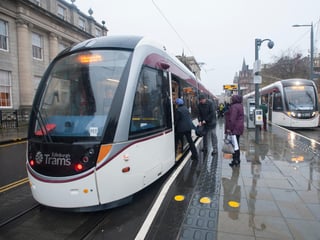Scotland's transport revolution will benefit from more carrot, less stick to persuade drivers to get out of their cars – Scotsman comment


In the years following the Second World War, planners envisaged towns and cities in which everyone had their own personal car and other forms of transport, including the most basic, walking, seemed decidedly out of fashion, as many new-town pedestrians can attest.
However, climate change, pollution, regular traffic jams, and growing concern about the harmful effects of sedentary lifestyles, have all combined to persuade politicians across the spectrum that change is needed; some of Boris Johnson’s most memorable achievements as mayor of London were the improvements made to the cycling network.
Advertisement
Hide AdAdvertisement
Hide AdNow Transport Scotland has published a report laying out plans for major improvements to the public transport system in an effort to persuade us to drive less and create more space for walking, cycling and wheeling.
A new Glasgow “metro” and Edinburgh “mass transit” system could feature trams and dedicated busways with eye-catching suggestions for the latter including the recreation of “a south suburban railway” and a “cross-Forth light-rail transit system to Fife”.
Edinburgh Council’s transport convener Lesley Macinnes spoke of how the report’s support for the “reallocation of road space for walking and cycling... will help us create a truly people-friendly city”.
But, while this vision of the future is a sensible one, how to get there is a question that our politicians must answer with care.
There are increasing complaints among the public about “anti-car” policies that are causing people problems as they try to get on with ordinary living. Decades of pro-car policies have made motor vehicles an integral part of everyday life for many.
And that means measures put in place to discourage car travel risk alienating the public, particularly if this is done where public transport does not provide a practical alternative.
There may need to be a degree of ‘stick’ to persuade people to leave their cars at home, but the best way to achieve lasting change that won’t be derailed by public discontent is by providing considerably more in the way of ‘carrots’, like an integrated transport system that means getting from A to B, wherever you are in a city, is almost as easy as it would be in a car if there was no other traffic on the road.
A message from the Editor:
Thank you for reading this article. We're more reliant on your support than ever as the shift in consumer habits brought about by coronavirus impacts our advertisers.
If you haven't already, please consider supporting our trusted, fact-checked journalism by taking out a digital subscription.
Comments
Want to join the conversation? Please or to comment on this article.
